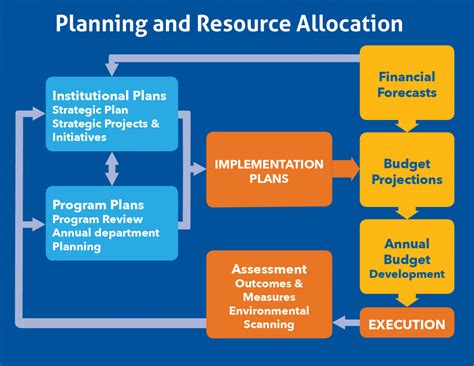Managing Finances: Budget Planning and Resource Allocation
Effective financial management is crucial for individuals and organizations alike. It's not just about making ends meet; it's about achieving financial goals, building wealth, and securing long-term financial stability. This comprehensive guide delves into the core aspects of managing finances, focusing on budget planning and resource allocation strategies. Whether you're an individual striving for financial independence or a business aiming for sustainable growth, understanding these principles is paramount.
What is Budget Planning?
Budget planning is the process of creating a detailed plan for how you will spend your money over a specific period. This involves carefully tracking income and expenses, identifying areas where you can save, and allocating funds towards your financial goals. A well-structured budget provides a roadmap for achieving financial stability and helps you make informed financial decisions. It's not about restriction; it's about conscious spending aligned with your priorities.
How to Create a Budget: A Step-by-Step Guide
Creating a budget might seem daunting, but breaking it down into manageable steps simplifies the process:
-
Track your income: List all sources of income, including salary, investments, side hustles, and any other regular revenue streams. Be as accurate as possible.
-
Track your expenses: This is where meticulous record-keeping is essential. Monitor all expenses – both fixed (rent, mortgage, loan payments) and variable (groceries, entertainment, transportation). Utilize budgeting apps, spreadsheets, or even a notebook to keep track. For a month, meticulously record every penny spent.
-
Categorize your expenses: Grouping expenses into categories (housing, food, transportation, entertainment, etc.) provides a clearer picture of your spending habits. This allows you to identify areas where you might overspend.
-
Analyze your spending: Once you have a comprehensive overview of your income and expenses, analyze the data to identify areas for potential savings. Are there any unnecessary expenses you can cut back on?
-
Set financial goals: Define your short-term and long-term financial goals. These could include paying off debt, saving for a down payment on a house, or investing for retirement.
-
Allocate resources: Based on your income, expenses, and goals, allocate funds accordingly. Prioritize essential expenses and allocate remaining funds towards your goals.
-
Review and adjust: Regularly review your budget (monthly or quarterly) and adjust it as needed. Life circumstances change, and your budget should reflect those changes.
Resource Allocation Strategies: Maximizing Your Finances
Resource allocation refers to the strategic distribution of your financial resources to achieve your financial goals. Effective resource allocation requires careful planning and consideration of various factors. Here are some key strategies:
-
Prioritize high-impact areas: Focus your resources on areas that offer the highest return or contribute most significantly to your financial well-being. For example, paying down high-interest debt should often be prioritized over low-interest debt.
-
Diversify your investments: Don't put all your eggs in one basket. Diversifying your investments across different asset classes (stocks, bonds, real estate) can help mitigate risk and potentially maximize returns.
-
Emergency fund: Building an emergency fund is crucial for handling unexpected expenses without derailing your financial plans. Aim for 3-6 months' worth of living expenses.
-
Debt management: Develop a strategy to manage and reduce your debt. Consider debt consolidation or balance transfer options to lower interest rates.
-
Long-term savings: Regularly contribute to long-term savings accounts, such as retirement accounts or investment accounts, to build wealth over time.
What are some common budgeting methods?
Several budgeting methods can help you effectively manage your finances. The most suitable method will depend on your individual circumstances and preferences. Popular options include:
-
50/30/20 budget: This method allocates 50% of your income to needs, 30% to wants, and 20% to savings and debt repayment.
-
Zero-based budgeting: This method involves allocating every dollar of your income to a specific expense category, ensuring that your income and expenses balance out to zero.
-
Envelope system: This involves assigning physical envelopes to different expense categories and allocating cash for each category.
-
Pay yourself first: This strategy prioritizes saving and investing by setting aside a portion of your income before paying other expenses.
How can I track my expenses effectively?
Effective expense tracking is fundamental to successful budgeting. Several tools can help:
-
Budgeting apps: Numerous apps (Mint, YNAB, Personal Capital) automate expense tracking, categorize transactions, and provide insightful reports.
-
Spreadsheet software: Excel or Google Sheets allow for customized tracking and analysis.
-
Manual tracking: A simple notebook or journal can also work, though it requires more manual effort.
Regardless of the method chosen, consistency is key. Regularly updating your expense tracking is vital for accurate budget monitoring.
What if I'm struggling to stick to my budget?
Sticking to a budget can be challenging, but it’s achievable with discipline and the right strategies. If you’re struggling, consider:
-
Re-evaluating your goals: Ensure your budget aligns with your realistic financial goals.
-
Seeking professional advice: A financial advisor can provide personalized guidance and support.
-
Identifying and addressing emotional spending: Understanding the underlying reasons for overspending can help you develop better spending habits.
By implementing effective budget planning and resource allocation strategies, individuals and organizations can gain control of their finances, achieve their financial goals, and build a secure financial future. Remember, consistent effort and adaptation are crucial for long-term financial success.

